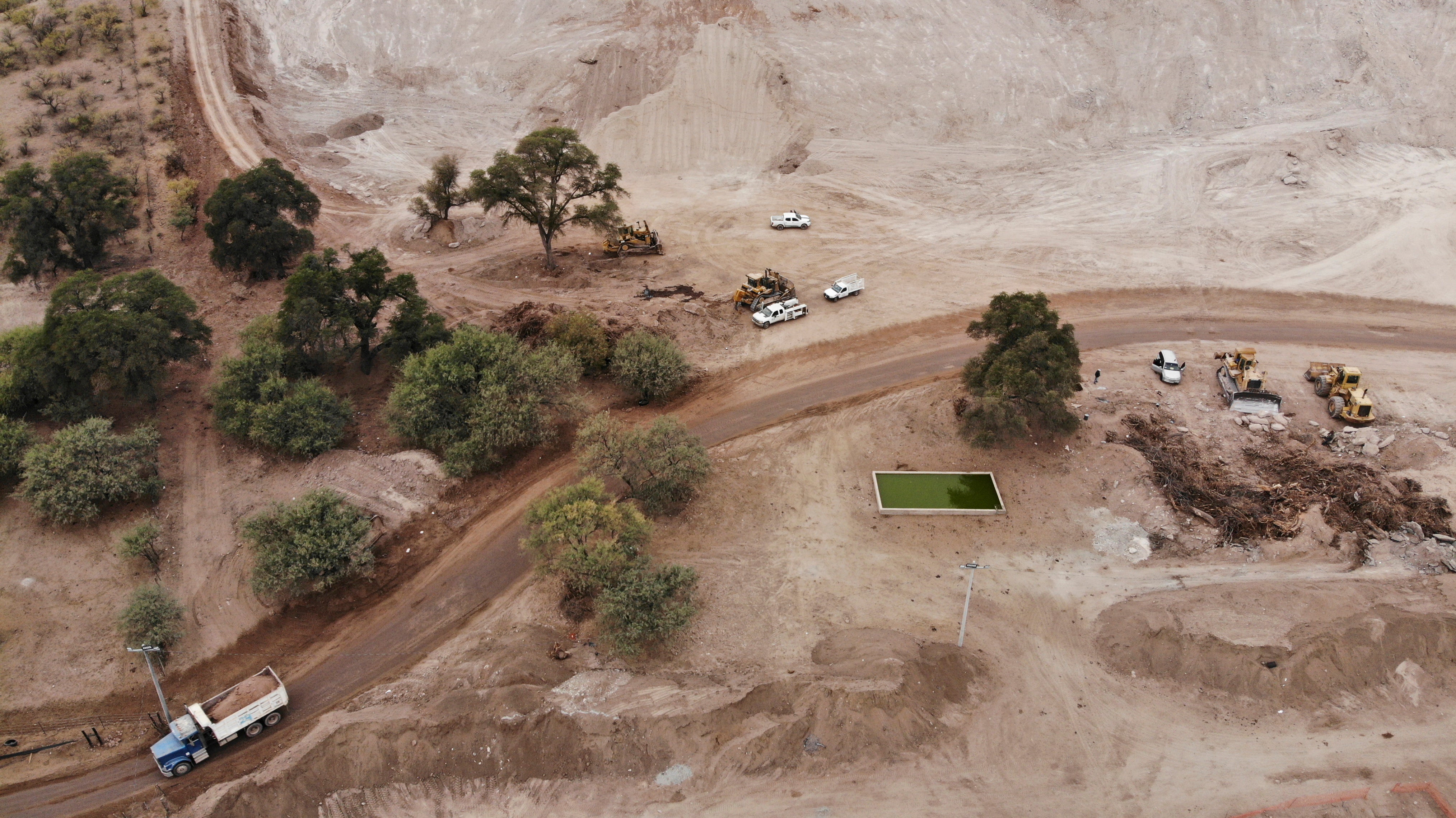Mexican officials admit secrecy-shrouded border train project had no environmental impact study
The governor of Mexico's border state of Sonora has acknowledged that a secrecy-shrouded train project was an army undertaking that has not yet submitted any environmental impact statement, even though it is already being built

Your support helps us to tell the story
From reproductive rights to climate change to Big Tech, The Independent is on the ground when the story is developing. Whether it's investigating the financials of Elon Musk's pro-Trump PAC or producing our latest documentary, 'The A Word', which shines a light on the American women fighting for reproductive rights, we know how important it is to parse out the facts from the messaging.
At such a critical moment in US history, we need reporters on the ground. Your donation allows us to keep sending journalists to speak to both sides of the story.
The Independent is trusted by Americans across the entire political spectrum. And unlike many other quality news outlets, we choose not to lock Americans out of our reporting and analysis with paywalls. We believe quality journalism should be available to everyone, paid for by those who can afford it.
Your support makes all the difference.The governor of Mexico’s northern state of Sonora acknowledged Tuesday that a secrecy-shrouded train project was an army undertaking that has not yet submitted any environmental impact statement, months after construction had already started.
The rail link between the port of Guaymas and the border city of Nogales threatens to cut through and damage environmentally-sensitive conservation lands.
Sonora Gov. Alfonso Durazo justified the new rail line project saying it would solve the problem of a rail line that passed through the center of Nogales by diverting rail traffic outside the city.
But while the state is partially financing the project, it is "being carried out by the Defense department,” Durazo said Tuesday, adding that the state's operational role is limited to helping the Army secure the rights-of-way.
The Sonora state government is trying to convert Guaymas, on the Gulf of California, into a major container port, but the current railway connection to the United States cuts the city of Nogales in half.
The new rail line cuts a completely new path well south of Nogales that threatens to cut through the Aribabi ranch, a federally designated Natural Protected Area, and the town of Imuris, 40 miles (65 kilometers) south of the U.S.-Mexico border.
The project illustrates the power that Mexico’s president Andrés Manuel López Obrador has given to the army, which has been allowed to sidestep normal permitting and environmental standards. This has been the case of the Maya Train tourist rail line on the Yucatan peninsula, which cut a swath through the jungle.
In the face of court challenges and criticism, López Obrador in 2021 passed a law stating the projects of importance to “national security” would not have to submit impact statements until up to a year after they start construction.
Opponents of the rail line in Sonora, meanwhile, have been unable to get even the most basic information on the train line, with no federal, local or state authority willing to take responsibility for the $350 million project to build 40 miles (63 kilometers) of train line.
Even though parts are already under construction and government contractors have begun felling trees and bulldozing the path for the railroad toward the Aribabi ranch — home to a rare combination of black bears and jaguars — no environmental impact statement has ever been filed.
“Because it is a strategic project, it is the responsibility of the Environment Department and we have a year to submit the environmental impact, and that is well under way,” Durazo said.
There has been no official communication: no plan, consultation or environmental assessment, local residents say. The project is not mentioned on any state or federal government websites, or in Sonora state’s development plans.
Omar del Valle Colosio, Sonora state's chief development officer, said all rights-of-way were being negotiated with residents.
“The project being carried out is only being done with the authorization of the public,” Del Valle Colosio said Tuesday.
But local residents say the state’s infrastructure and urban development department has offered to buy portions of some properties for as little as 1.80 pesos (10 U.S. cents) per square meter.
According to a map leaked by a local official in the spring, the project will create a second rail line for a portion of the existing route between Nogales and the port of Guaymas, this time following the Cocospera river south before cutting through the west perimeter of the Aribabi ranch and then pulling west, into Imuris.
Locals say the route rides roughshod over their farms’ irrigation canals and threatens the reservoir that provides water for the township’s 12,500 residents.
In addition to disrupting wildlife that rely on the river, construction will also cut up an important migration corridor over the Azul and El Pinito mountains for ocelots, black bears and jaguars, according to the Center for Biological Diversity.
____
Follow AP’s coverage of Latin America and the Caribbean at https://apnews.com/hub/latin-america